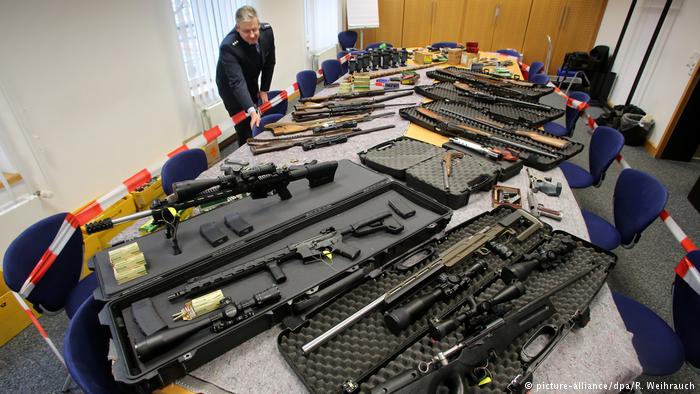Eight people have been found guilty of numerous crimes including deliberate attacks on refugee shelters in Germany, DW reports. After a yearlong trial, the legal points hinged on the very nature of the group’s structure and intent.
The Dresden Higher Regional Court on Wednesday found seven men and one woman who formed the “Freital Group” guilty of forming a terror group, attempted murder and aiding and abetting crimes, including attacks on refugees shelters and political opponents.
The court handed out prison sentences ranging from four to 10 years. The Freital Group’s leaders, identified as Timo S. and Patrick F. in accordance with German press code, received 10 and nine-and-a-half year sentences, respectively. The courtroom in the eastern German state of Saxony was constructed in the high-security state penitentiary in Dresden.

Group’s goal was to create ‘a climate of fear’
In his closing arguments, Senior Federal Prosecutor Jörn Hausschild said he was convinced that the group’s crimes were based on xenophobic, right-wing extremist, and Nazi ideology. The eight individuals, he claimed, operated in varying capacities with the aim of creating “a climate of fear.”
Members of the group, however, saw themselves as protecting the German people from refugees, immigrants and those with different political views. The accused are also convinced that German Chancellor Angela Merkel is a traitor to the German people. Members discussed and planned who would “get it next” in so-called dark chats online and via telephone.
The eight group members targeted hunted refugee aid workers and left-leaning politicians. They acquired explosives — 130 times more powerful than those legally allowed in Germany — in the Czech Republic. They made coded reference to the explosives by calling them “vegetables.”
During closing arguments, Hausschild said it had simply been a matter of good fortune that no one was actually killed during the attacks the group carried out. The “Czech firecrackers,” he argued, packed a deadly explosive potential, especially in instances in which they were planted on windows — at which point they became fragmentary bombs. The defendants were accused of having done just that in an attack on a refugee center, with federal prosecutors having charged that such incidents constituted attempted murder.
Police warned Freital-based neo-Nazis
Some individual police officers appear to have been more than sympathetic to the Freital Group and its activities. According to media reports, leading members of the group testified they had received information from one 51-year-old police officer. He is accused of having provided the group with information pertaining to the location and duration of police patrols in the areas where they carried out the attacks. The officer has meanwhile been suspended.
It is only thanks to the German Federal Prosecutor’s Office that the Freital Group even became the subject of a trial of this scope. Federal prosecutors took over the case and its investigation from Saxony’s state prosecutors in what has become an absolute disgrace for the state’s justice department.
The strategy of the defense team, on the other hand, was to claim that the Freital Group was neither a criminal nor a terror organization. Andreas Scheider, defense attorney for group member Patrick F., claimed “what we have here is a series of spontaneous acts.” Like his colleague, Michael Sturm, who was defending group member Timo S., he also raised doubts about the lethal potential of the explosives used in the crimes.
Complex burden of proof
Nikolaos Gazeas, a criminal legal specialist and expert on paragraph 129a of the German Penal Code (StGB), had noted before the verdict was announced that two critical points could have hindered a conviction on the charges for founding of, membership in, or the abetting of a terrorist organization. He said paragraph 129a of the StGb requires proof of a minimum level of established organization within the group. Gazeas said the Freital Group’s defense team thus tried cast doubt on that point by emphasizing the “spontaneous” nature of the attacks.
Read also: Why Germany’s far-right flourishes in Dresden
Moreover, prosecutors had to prove that the group exhibited an overriding will to achieve terrorist aims. Proof of that would be evidenced if the group’s members worked in a coordinated fashion, as Gazeas told DW. “It is not out of the question that the structure and activities of the Freital Group did cross the legal threshold defining what a terror organization is.” The court found the evidence exceeding that threshold.
Nevertheless, Gazeas, who also teaches law at the University of Cologne, said before the verdict was pronounced that if the Dresden court convicted the defendants, it would not likely be the last word on the issue: “I am certain that the defense team will appeal, then it will be up to the Federal Court of Justice to decide.”
